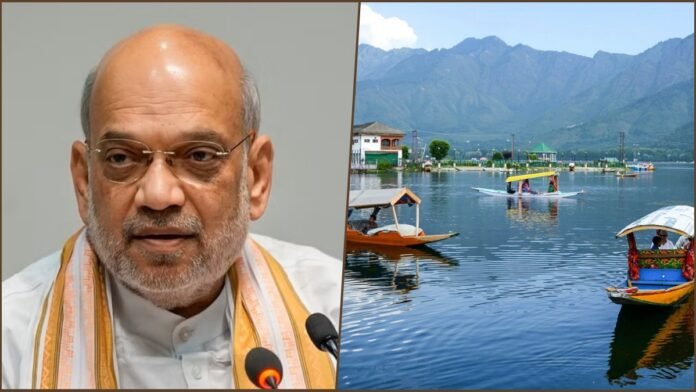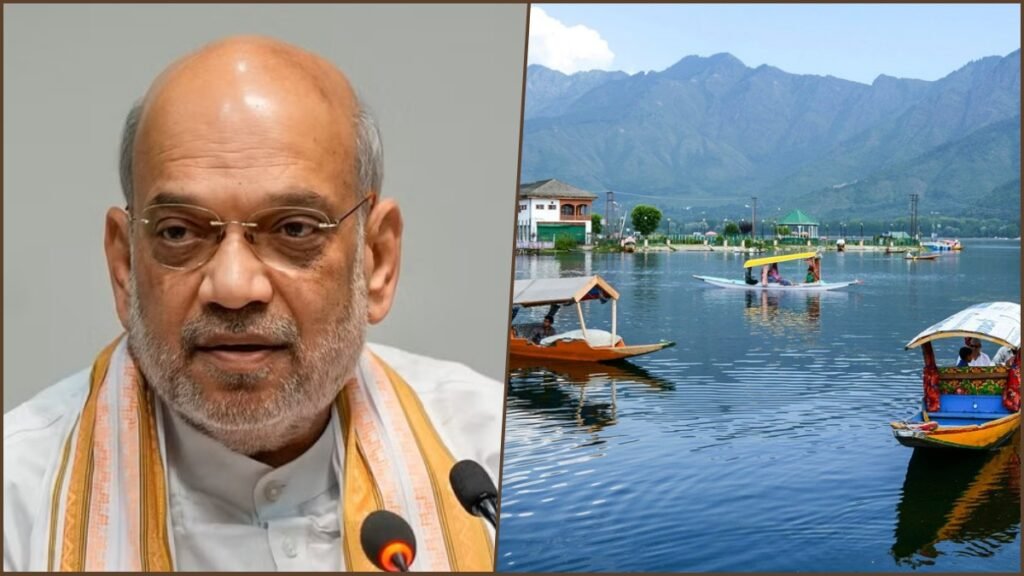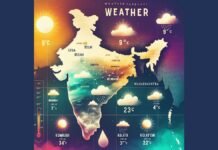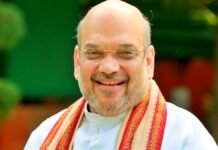
Key Points:
- Omar Abdullah and Rahul Gandhi demand full statehood for Jammu and Kashmir.
- Union Home Minister Amit Shah hints at renaming Kashmir after Rishi Kashyap.
- Amit Shah asserts that democracy and development are thriving in Jammu and Kashmir.
- The abrogation of Article 370 and 35A in 2019 marked a turning point for the region.
- Opposition parties continue to press for statehood, but Amit Shah’s statement signals a strategic political move.
New Delhi: Political tensions are escalating over the future of Jammu and Kashmir (J&K) as opposition leaders, including National Conference’s Omar Abdullah and Congress’s Rahul Gandhi, intensify their demand for restoring full statehood to the Union Territory. Meanwhile, the Central Government appears to be steering the narrative in a different direction, with Union Home Minister Amit Shah hinting at renaming the region as part of a broader strategy.
Amit Shah’s Bold Statement: A New Name for Kashmir?
During a recent event, Amit Shah made a significant remark that sent ripples through the political landscape. He expressed satisfaction with Kashmir’s integration into India’s “geo-cultural” fabric and its progress on the path of development. Shah suggested that the region could be renamed after the revered Rishi Kashyap, a legendary sage in Indian mythology.
“Kashmir was, is, and will remain an integral part of India,” Shah declared, emphasizing the historical and cultural ties that bind the region to the nation. His comments have ignited a debate, with some welcoming the idea and others criticizing it as an unnecessary distraction from pressing issues like statehood.
J&K’s Political Landscape Since 2019
The current debate stems from the landmark decision by the Narendra Modi-led central government in 2019, which abrogated Article 370 and 35A, stripping J&K of its special status. The region was bifurcated into two Union Territories: Jammu & Kashmir and Ladakh.
This move was lauded by BJP supporters as a step towards integration but was met with strong resistance from opposition parties and sections of the local population. Since then, restoring full statehood has been a key demand in political manifestos, including those of the Congress and National Conference during the recently concluded assembly elections.
Statehood Demands vs. Central Government Strategy
Omar Abdullah and Rahul Gandhi have been vocal in their calls for statehood, describing it as essential for restoring the dignity and democratic rights of J&K’s people. However, Amit Shah’s latest remarks suggest that the government is exploring alternative narratives to reshape the discourse around Kashmir’s identity and future.
Shah also took a swipe at traditional narratives, stating that “history is not written in Lutyens Delhi.” He urged historians to document the history of Kashmir based on evidence rather than political agendas.
Political Gamble or Strategic Vision?
Amit Shah’s proposal to rename Kashmir after Rishi Kashyap is seen by many as a calculated political move. By invoking cultural and historical symbolism, the government may be attempting to strengthen its position in the region and among its national voter base.
At the same time, the demand for statehood remains a significant political challenge. While the government has expressed willingness to consider the issue, its current focus on renaming could delay or divert attention from this key demand.

What Lies Ahead for Jammu and Kashmir?
As the region’s political future hangs in the balance, the opposition’s push for statehood and the government’s cultural reframing will shape the discourse. Whether the renaming proposal gains traction or statehood restoration takes precedence, Jammu and Kashmir remains at the forefront of India’s political and cultural narrative.






















































